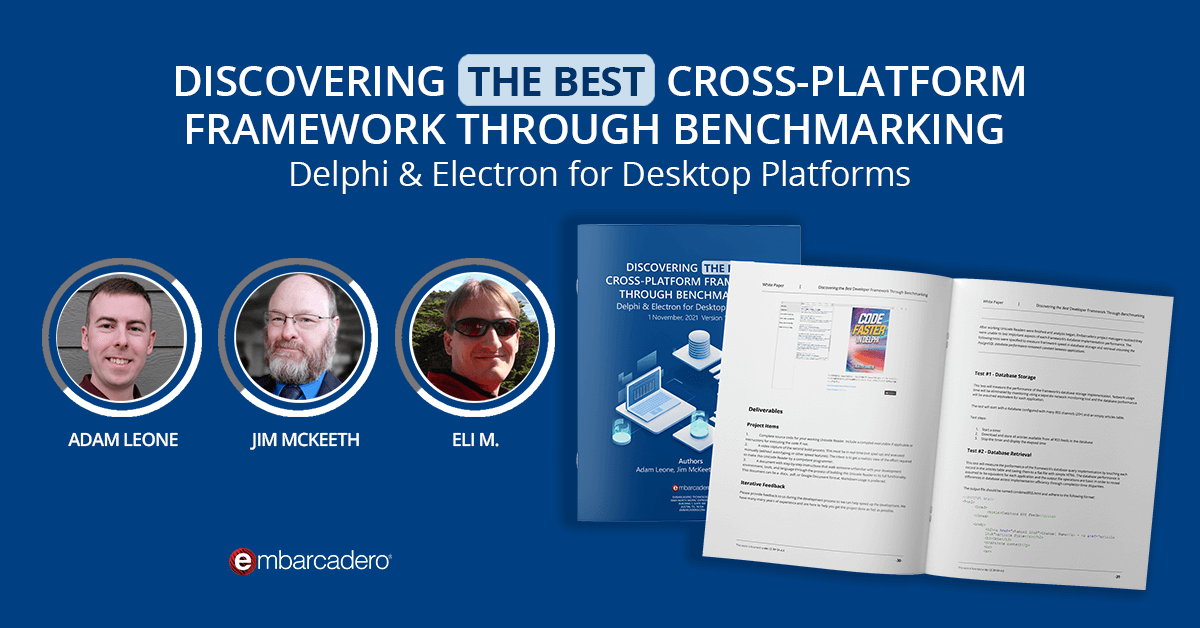
RAD Studio is a great Delphi and C++ IDE (C++ Builder). It’s an IDE packed full of many great features to help you develop professional applications in the fastest and most efficient ways possible. Recently, Delphi had a very active week with DelphiCon with many great presentations with tons of tips and techniques for professional Delphi developers. I also found some presentations are also related to C++ Builder thanks to their shared use of the VCL and FMX GUI frameworks.
If you missed the DelphiCon 2023 Presentations, you can watch them on YouTube here.
Even this busy week, on the C++ side, we have more new modern C++ examples that can be compiled by any C++ IDE and compiler that supports C++17 or greater. If you want to dive deep into C++ Programming, then the LearnCPlusPlus.org website is the right place for you. We keep adding more features of modern C++ and how to get the best use out of RAD Studio and C++ Builder. If you want to improve your C++ skills, we have a rich treasure chest of posts already on LearnCPlusPlus.org and we aim to build on that wonderful resource in 2023. We should note that most of the C/C++ examples are compatible with many C and C++ compilers.
Every week on this main Embarcadero blog, we like to give you a selection of recent C++ and C topics from the LearnCPlusPlus.org website. We also try to answer all the questions about the business of writing C++ code you might have, so please ask in the comments section below if you would like to see any specific topics covered.
What modern features of templates in C++ programming do we have today?
One of the great features of modern C++ is the ability to define templates. A template is a simple and very powerful statement in C++ that defines the operations of a class or function. The parameters of a template can be:
- a type template parameter,
- a non-type template parameter,
- a template template parameter (a template passed as a parameter to the template)
A type template parameter (typename or class) is a type parameter key provided within a template parameters list and it is a typename or class. Thus, a user may use different type names or classes for the different declarations with templates. In the first article, we explain type parameters for the template in C++. Here is the article, https://learncplusplus.org/learn-type-parameters-for-templates-in-c/
A non-type template parameter (aka non-type template argument) is provided within a template parameters list and it is an expression whose value can be determined at compile time. In another article, we will explain non-type parameters for the template in C++. Here is the article about non-type template parameters, https://learncplusplus.org/learn-non-type-parameters-for-templates-in-c/
Template Instantiation means to create a new definition of a function, class, or member of a class from a template declaration with template argument types. For example, a class template is not a type or an object, or any other entity, this does not generate a code from a source file that contains only a template definition. When instantiated, the code of a template appears. Template instantiation can be done in two different ways: Explicit instantiation and Implicit instantiation. In the next article, we will explain what we mean by Implicit Template Instantiation, https://learncplusplus.org/learn-what-is-implicit-instantiation-of-a-template-in-c/
A Variable Template is used to define a family of variables or static data members. If a static data member is instantiated from a static data member template, it is called an instantiated static data member. In the last article, we explain Variable Template in C++ examples, https://learncplusplus.org/learn-what-is-a-variable-template-in-c/
What can we learn with examples about modern features of templates in C++ programming?
LearnCPlusPlus.org has been around for 2 years at the time of writing and is packed full of educational posts about C and C++.
We love to hear your feedback. You motivate us so much with your likes and comments on social media and here. Thank you for your valuable comments and questions. All of them help improve the quality of our future posts and new code in these posts.
We have a lot of unique posts waiting to come. We keep adding new topics every week about C++ in general and specific topics for C++ Builder, Dev-C++, and for the other C++ compilers. Please keep following our LearnCPlusPlus.org website for the latest posts and updates. Feel free to comment and share with your colleagues, students, members – knowledge is power, and knowledge shared is empowering.

C++ Builder is the easiest and fastest C and C++ IDE for building simple or professional applications on the Windows, MacOS, iOS & Android operating systems. It is also easy for beginners to learn with its wide range of samples, tutorials, help files, and LSP support for code. RAD Studio’s C++ Builder version comes with the award-winning VCL framework for high-performance native Windows apps and the powerful FireMonkey (FMX) framework for cross-platform UIs.
There is a free C++ Builder Community Edition for students, beginners, and startups; it can be downloaded from here. For professional developers, there are Professional, Architect, or Enterprise version.
Design. Code. Compile. Deploy.
Start Free Trial Upgrade Today
Free Delphi Community Edition Free C++Builder Community Edition





